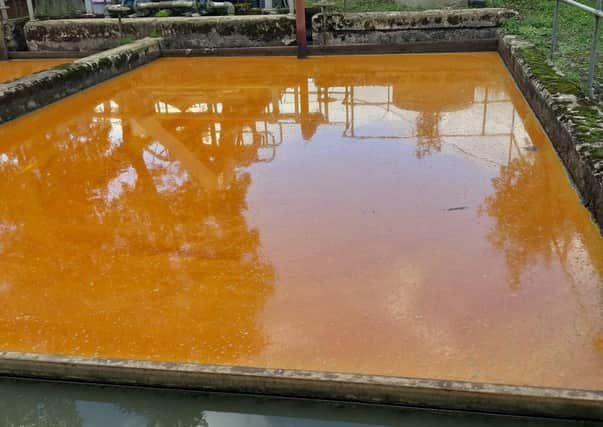Clean-up under way at St Boswells waterworks to avert threat of oil causing fatberg blockage


If it had gone undetected, that oil could have formed what’s known as a fatberg and put sewer pipes at risk of blockage.
That threat has been averted, however, by workers dealing with the oil overload in the plant’s primary tanks.
Advertisement
Hide AdAdvertisement
Hide AdAlan Aitchison, Scottish Water’s waste water team leader for the southern Borders, said: “The amount of cooking oil which entered our works at St Boswells was significant.
“We now have to empty and carry out extra cleaning of a number of tanks, and we will have to transport the contaminated sludge to Galashiels waste water treatment works, where it will be disposed of and treated in a way which is non-harmful to the environment.
“Everything you dispose of down sinks and toilets will all end up in the drains and sewers, and we urge everyone to think twice about how they dispose of fats, oils, grease and other products such as wipes and cotton buds that aren’t biodegradable and can potentially lead to sewer blockages that will impact on our water courses and environment.
“Toilet paper is the only biodegradable material that should be disposed of into the sewer collection system. All other items should be bagged and binned for disposal.”
Advertisement
Hide AdAdvertisement
Hide AdScottish Water deals with around 100 bursts nationwide daily, many of them caused by fats or oils being put down drains and sinks by at homes or businesses.
It deals with about 35,000 blockages annually at a cost of £6.5m.